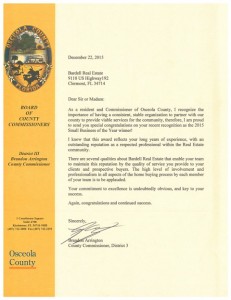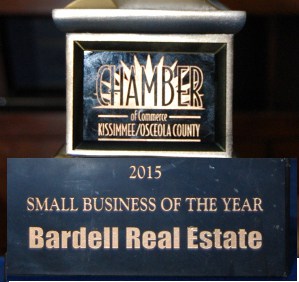
by admin | Apr 4, 2016 | Homes, Villas and Condos, Investment Property in Florida, Mortgages, Real Estate News
How to Budget for a House
Budget for a House – When you decide to buy a home, one of the first tasks you need to complete is to determine the amount you can afford to pay each month. Knowing how to budget for a house is crucial in calculating the price range for the home itself.
Some house listings may indicate some of its current expenses, such as property tax and electricity. You can use these figures in establishing a baseline monthly amount, but it is not complete. To budget accurately for a home, you need to include as many recurring expenses as possible to ensure that your home affordability budget is comprehensive, and therefore realistic.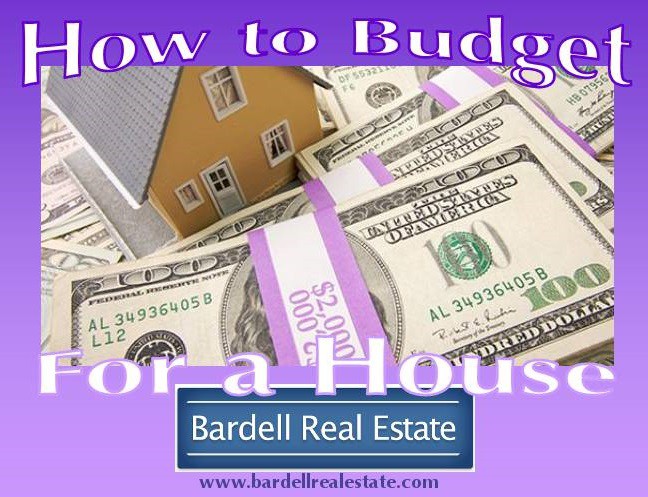
There are several reasons for calculating affordability. First, you don’t want to spend time looking and dreaming of homes that you cannot afford to buy. You would be better off looking at properties in the lower end of your price range and working up. That way, you can understand what you get with a home priced at $200,000 versus what you get at $155,000.
Next, it isn’t just about how much you are allowed to borrow. Knowing how to budget for a house indicates in black and white what you can afford comfortably in your overall financial landscape. Not only do you need to factor in the monthly mortgage payment itself, but you may have mortgage insurance, home insurance, property taxes, water bill, car payments, medical fees, grocery bills, student loans – and all of these expenses will affect how much money you will have left.
So what should you include in a home budget? Some of the basic costs that will help you how to budget for a house are below.
Home Warranty
A home warranty is a type of insurance that will help you recoup the replacement or repair costs of items covered under the plan. This is a set cost, which makes it easy to include in a home budget. Make sure you read your warranty carefully so you know exactly what is covered, what is not, how much your deductible is, and how much money you may expect to recoup in case you need to make a claim.
Out with the Old
Whether you are buying an older home or a brand new one, at some point you will need to replace older, broken, or inefficient components, such as the driveway, roof, windows, carpets, paint, just to name a few.
Budgeting for these repairs from the get-go is a great way to know that you have the money available when you need it without having to put the expense on credit. Get estimates so that you know how much to allot each month, and remember to allot more money for those items that need to be replaced sooner.
Appliances
Cooking, heating, baking, cleaning – we all use appliances every day for different, yet necessary tasks. But nothing lasts forever, and some appliances seem to break faster than expected, especially if you have older or inefficient appliances. For example, gas and electric dryers have an average life expectancy of 13 years. Washing machines tend to last 10 years and freezers 11 years. Determine the age of your appliances and calculate a monthly cost into your home budget so that you are not caught off guard when something needs to be fixed.
Recurring Expenses
Everyone has certain expenses that they know they have to pay – groceries, clothing allowance, homeowner’s association dues, car insurance, utilities, among others – and you need to include these in your budget too. Take a look at your accounts and bills to get a decent estimate about how much these items cost you each month. Don’t forget to include “fun” expenses as well, such as vacations, eating out, and gifts, as well as debt repayment and retirement savings.
Expect the Unexpected
As odd as it sounds, your home budget also has to account for unexpected expenses too. This can include traffic tickets, workplace donations, or repairing a lawnmower. Therefore, it helps to save a small amount in a rainy day fund to cover costs that you have not accounted for in your other budget categories.
Know Your Numbers
Crunching numbers is not the most exciting way to spend an evening or weekend, but financially, how to budget for a house is a smart activity to complete. Knowing what you can afford – truly afford – can save you headaches once the reality of living in a new home has set in. Do it right and live happily ever after.
Source: Shamrockfinancial.com
How to Budget for a House

Be sure to like us on Facebook!

by admin | Apr 2, 2016 | Homes, Villas and Condos, Mortgages, News, Real Estate News
Orlando Area Foreclosures Down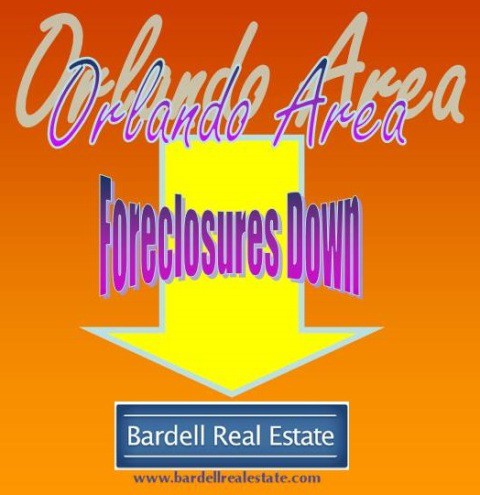
Orlando Area Foreclosures Down – The foreclosure rate for the Orlando-Kissimmee-Sanford area was 2.05 percent for January, according to new CoreLogic data released March 29.
The region’s foreclosure rate fell 1.26 percentage points in January compared to the year-ago period when the rate was 3.31 percent. The foreclosure rate measures the percentage of loans in some stage of the foreclosure process. Orlando’s declining foreclosure rate is a positive sign for the region, as fewer bank repossessions indicate a stronger homeowner market. It also signals less distress in the market and helps boost property values.
Statewide, Florida’s foreclosure rate was higher than metro Orlando’s, at 2.28 percent in January. However, it was still a 1.32 percentage point decrease from the year-ago period when the foreclosure rate was 3.6 percent. The mortgage delinquency rate in the Sunshine State was 5.23 percent in January, down from last year’s 7.83 percent.
Source: Orlando Biz Journal
Orlando Area Foreclosures Down

Be sure to like us on Facebook!

by admin | Mar 21, 2016 | Homes, Villas and Condos, Long Term Rental, Mortgages, News, Property for Sale, Property for Sale in Orlando, Real Estate News
Orlando Renters It’s Time to Buy a Home – Homebuyers are expected to outnumber home sellers this spring, which will likely drive up asking prices, says Lawrence Yun, chief economist for the National Association of Realtors® (NAR).
“Given that prices are rising, more people will be pushed on the borderline of conventional mortgage limits and may need a large downpayment or a jumbo mortgage,” Yun told The Wall Street Journal.
Nationwide, the median price for an existing single-family home in January was $213,800 – up 8.2 percent from a year ago, according to NAR’s housing data. Home prices are moving at the highest rate since April 2015.
“There’s a decade of pent-up demand,” says Bob Walters, chief economist of Quicken Loans.
One piece of good news for homebuyers this spring: Mortgage rates are expected to stay low, with the 30-year fixed-rate mortgage not likely to rise above 4 percent before May, says Keith Gumbinger, vice president of HSH.com, though the long-term outlook for mortgage rates is less certain.
As such, lenders predict that the spring season will be a busy one.
To avoid closing delays, buyers need to get into the market sooner rather than later, says Paul Anastos, president of Mortgage Master in Walpole, Mass., a division of loanDepot. Like a traffic jam, “every minute later you leave costs you 10 minutes,” he notes. “Every day, the audience looking for houses increases exponentially.”
Anastos also urges homebuyers to get preapproved for a loan prior to home shopping – a step above pre-qualification. He says that alone could save home shoppers up to 10 days in the closing period. And “If you find a home this weekend, you look highly competitive.”
Source: FloridaRealtors.org

Be sure to like us on Facebook!
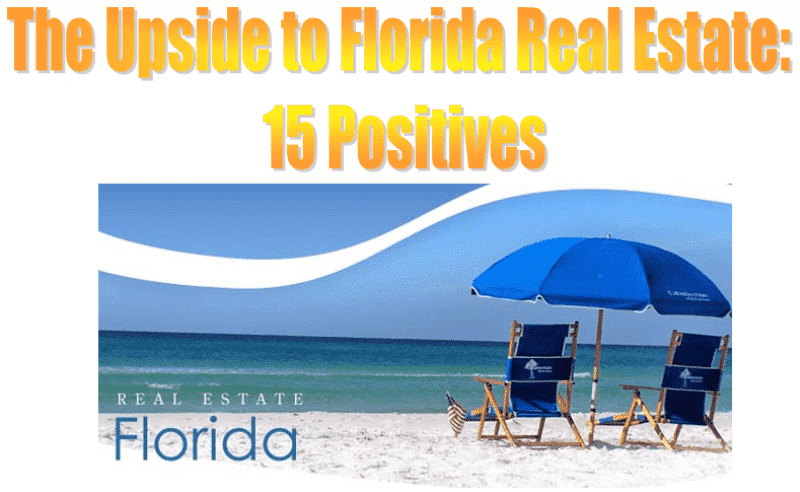
by admin | Mar 9, 2016 | Investment Property in Florida, Mortgages, News, Real Estate News
Florida Real Estate: 15 Market Positives

Florida Real Estate, The Upside: 15 Market Positives – Let’s take a look at some of the opportunities and positive indicators for the future of the Florida real estate market.
1. Great prices. Statewide, home prices have fallen about 20 percent in the past year. Florida Association of Realtors® statistics show the existing-home median sales price was $185,400 in the third quarter of 2008, compared with $233,200 in third quarter 2007.By the way, those numbers are still significantly higher than in the early years of the decade. In 2003, the third-quarter sales price was $163,700, which reflects an increase of about 13.3 percent over the five-year period. (The median is a typical Florida real estate market price where half the homes sold for more, half for less.)
2. The time is right. Florida real estate home sales volumes are rising again — a signal that the market recovery may be underway. In third quarter 2008, statewide sales of existing single-family homes were up 5 percent compared to the same period last year, according to FAR statistics.
3. High inventory levels. Conditions are ideal for buyers to find their dream home. Inventory is plentiful in all price ranges. But as sales volumes increase, inventory levels are likely to shrink. That reality translates into this advice for buyers: Don’t wait too long.
4. Low mortgage rates. Mortgage rates are still at the lowest levels since the 1960s. Lower rates multiply a buyer’s financial power. Even half a percent can make a sizeable difference. For example, on a $200,000 home, half of 1 percent could save the homeowner about $815 a year. Buyers can get more home for the money, which is a perfect scenario for families looking to upsize.
5. Incentives to buy. Federal, state and local housing programs can help buyers make that big purchase. The American Recovery and Reinvestment Act has increased the First-Time Homebuyer Tax Credit from $7,500 to $8,000 for purchases on or after Jan. 1, 2009, and before Dec. 1, 2009. Talk to a local mortgage lender about state and federal incentive programs.
6. A long-term-growth state. Long-term economic and demographic trends continue to favor Florida. By 2010, economists forecast that Florida will be the third-most-populated state in the country. Florida has been one of the 10-fastest-growing states in the U.S. for each of the past seven decades, and often the state has been in the top four, according to Census data.Population growth will continue to provide a foundation for other economic development, such as new jobs and growing incomes. All of these trends are positive indicators for Florida real estate growth.
7. A migration magnet. Even with a slowdown in economic growth nationally, projections call for Florida’s population to return to more normal growth levels of about 317,000 a year between 2010 and 2020, similar to the 1980s and 1990s, said Stan Smith, director of the University of Florida‘s Bureau of Economic and Business Research. That’s a lot of new buyers coming into the market.
8. A favored retirement destination. Over the long term, Florida stands to benefit from the migration of the aging Baby Boomer generation, roughly 80 million strong. Demographic studies show that the Sunshine State’s mild climate and outdoor amenities continue to make Florida a favorite retirement destination.
9. A diverse economy. Florida’s economy, like the rest of the nation, is impacted by the recession. Some business sectors, though, appear promising for the Florida economy. The healthcare and technology sectors are quickly becoming an important economic force in South and Central Florida.The Milken Institute/Greenstreet Real Estate Partners ranked five Florida communities on its “Best Performing Cities Index 2008,” which ranks U.S. metropolitan areas by how well they are creating and sustaining jobs and economic growth. Florida’s business climate ranked fourth among executives and sixth overall on Site Selection magazine’s 2008 Top State Business Climate rankings.
10. Investment outlook. Every quarter, the University of Florida’s Bergstrom Center for Real Estate Studies conducts a survey of industry executives, market research economists, real estate scholars and other experts. In the fourth quarter 2008 survey, the investment outlook for various types of Florida real estate declined from the third quarter of 2008, although it is noted that the investment outlook remains higher than it was at times in 2006 and 2007.”We have 40 pages of comments from our respondents, and although the dominant theme is the disruption of financing, perhaps the second theme, as one person put it, is people being on the sidelines with full pads and helmets just waiting to jump back in,” says Director Dr. Wayne Archer, when referencing the 2008 third quarter results.
11. Homeownership has value. Florida Real Estate agents believe — and research supports the belief — that homeownership provides a variety of tangible and intangible benefits to the community and homeowners. Studies show that home equity is still the largest single source of household wealth.
12. Greater sense of well-being. Owning a piece of Florida real estate leads to increased personal well-being. Research shows that people who own their own homes tend to show higher levels of personal self-esteem and life satisfaction, which in turn helps to make homeowners and their children more productive members of society.
13. Beneficial for kids. Studies show that children raised in homes owned by their families are more likely to stay in school and graduate high school. They’re also shown to have a higher lifetime annual income.
14. Community involvement. People who own homes have a strong financial stake in what happens to their community and tend to become more involved in community and civic affairs. Studies show that homeowners also interact more with their neighbors and communities.Compared to renters, homeowners join up to 41 percent more civic and/or nonprofessional organizations, such as the PTA or Scouts; vote in local elections 15 percent more often; enhance their neighborhoods with gardens 12 percent more often; attend church about 10 percent more often; and have a 3 percent greater chance of being interested in public affairs.
15. An unsurpassed lifestyle. Finally, let’s not forget the things that brought people to Florida in the first place, and will continue to attract them — beautiful beaches, fabulous weather and a friendly business climate, with no state income tax. It’s no wonder that Florida’s combination of temperate climate, outstanding recreational amenities and economic opportunity has consistently put the Sunshine State in the top three of Harris Poll’s “Most Desirable Places to Live” survey.
Source: The Orlando Sentinel
If you are considering purchasing a piece of Florida Real Estate, you need to contact a licensed Florida real estate professional that will answer all of your questions with out any pressure. Here at Bardell Real Estate that is how we operate. We go at the clients pace. Feel free to contact us.
The Upside of Florida Real Estate
by admin | Mar 7, 2016 | Mortgages, News, Real Estate News
Mortgages for 3% Down
NEW YORK (CNNMoney) —If you’re looking to buy a home but don’t have the 20% down payment sitting around, Bank of America is now offering mortgages for 3% down.
The new loan program is aimed at helping low- and moderate- income borrowers get home loans for up to $417,000.
To qualify, borrowers can’t make more than the median income for their area and need a credit score of at least 660. And the home must be the applicant’s primary residence.
Low down payment mortgages aren’t exactly new. But borrowers won’t have to pay private mortgage insurance with this loan.
Most loans with less than 20 percent down, like those backed by the Federal Housing Administration, also require monthly insurance premiums on top of the mortgage payments. The premiums are used to help protect the lender in case the borrower can’t make payments.
As with most mortgages, applicants must still have a debt-to-income ratio of no more than 43 percent. But Bank of America will also consider non-traditional forms of credit — like daycare expenses, health club memberships and rental history — to help determine credit history.
“There are creditworthy borrowers — people who have shown good experience paying off debts who fit income restrictions — and except for the fact that they don’t have the money for a down payment, they would be good homeowners,” said Terry Francisco, a spokesman for the bank.
Interest rates on the loans will be determined by a borrower’s creditworthiness and score, and Francisco said Bank of America’s loan option will be cheaper than FHA’s rate.
First-time buyers will have to attend a homebuyer education program.
Bank of America will sell the mortgages to nonprofit loan fund Self-Help, which will then sell them to Freddie Mac.
Low down payment loans aren’t a great fit for everyone though.
Putting less money down means you’re financing more, which leads to higher monthly payments and more money paid out in interest over the life of the loan. It also means you have less equity in the home, which could make you more vulnerable if home prices drop.
In the fourth quarter of 2015, the average down payment on a conventional 30-year mortgage was 17.5 percent, according to LendingTree.
Source: Wesh.com
If you interested in a new construction home or possibly a resale property in the Four Corners area of Davenport, Clermont, Kissimmee and even Haines City, give us a call. We will answer all of your questions with no obligation to you. Even sign up for our monthly MarketWatch Report. MarketWatch gives you an idea of what the market looks like and is community specific.
Bank of America to Offer mortgages for 3% down

by admin | Jan 28, 2016 | Homes, Villas and Condos, Investment Property in Florida, Local Events, Long Term Rental, Mortgages, New Construction, New Listing, News, Property for Sale, Property for Sale in Orlando, Real Estate News, Retirement / 55+, slider, Testimonials, Theme Parks and Attractions
“SMALL BUSINESS OF THE YEAR”
BARDELL REAL ESTATE

Back From left: Broker Associate Kevin Anderson; Broker Associate Jim Merganthaler; Agent Mona Sutphin-O’Niell; Managing Broker/President/Owner Steve Silcock; Office Manager/P.A. to Steve Silcock Hannah Garrity; Sales Administrator Bobby Gonzalez; Senior Property Manager Tim Hack
Front From Left: Broker Associate Cheryl Laymon; Founder Betsy Bardell; Co-Owner/Agent Anne Silcock; Admin Marjorie Silcock (Not listed above: Agent Audrey Bahrman; Broker Associate Michael Anker)
The Osceola Chamber of Commerce awards Bardell Real Estate with the 2015 “Small Business of the Year”
It has been a pleasure to work for this family owned and operated company for the last 2 years. With just 10 closely knit employees, an extended family is what Bardell Real Estate has grown to be. That camaraderie, coupled with the eagerness to help each other pours over to our customers and our community. Our customers range from international investors and snow birds flocking down to escape the cold winters of the north to residential home buyers seeking the home of their dreams and long term rental property management.
A great majority of our business comes from repeat customers and referrals. We all here at Bardell Real Estate would like to thank all of you for this award. Our relationships with our customers and clients have developed into friendships. We are honored that you have allowed us the opportunity to assist you in all of your real estate needs.











